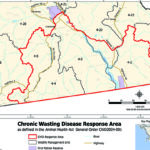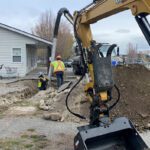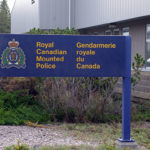Home »

Region’s most famous son and environmental groups pledge to keep Jumbo wild
Cranbrook’s and the East Kootenay’s most famous son is disappointed with the provincial government over signing the Master Development Agreement for the Jumbo Glacier Resort last week.

Professional hockey legend Scott Niedermayer, the now retired rock-steady, calming influence defenseman who captained Canada’s 2010 Olympic Winter Games team, believes the provincial government has made ‘a Jumbo mistake’ in giving the green light, after almost 22 years, for the $1 billion ski resort proposal for the Jumbo Creek Valley, 55 km west of Invermere.
“I am disappointed with the B.C. government’s decision on the Jumbo Glacier resort. I will continue my efforts to protect the unique, wild areas of the Kootenays for future generations to enjoy. The majestic wildlife, like the grizzly bear, need these large wilderness areas to support healthy populations,” Niedermayer stated.
Niedermayer is not alone, said John Bergenske, Wildsight’s executive director.
“It’s extremely unfortunate that the provincial government has ignored the overwhelming opposition to this project from the people of the Kootenays, the Ktunaxa Nation’s spiritual values, and ignored the clear scientific consensus against the development by North America’s leading grizzly bear experts. It’s a bad decision. But it’s not the end.” Bergenske said.
Considering the money needed to begin construction of such a project, which will include a 6,250 bed village, it is unlikely that anything will happen in Jumbo, Berrgenske said, noting that ski hills across the Kootenays are running below capacity and there is a declining trend in the ski industry and real estate market.
“This is not economic diversification,” Bergenske said. “The Kootenays have lots of ski resorts, heli- and cat-ski operations. Jumbo is a land grab, pure and simple.”

Before the project can move forward, the land must be rezoned, and the province hasn’t indicated how. Glacier Resorts has requested that the Province declare the area a resort municipality, creating a town with zero population and an appointed council, the first in B.C.
“It’s never been done before,” Bergenske said.
Niedermayer said it’s not time to let the issue drop. “I believe we must do all we can to keep these places wild, as they are coming under increasing pressure of development and disappearing around the world,” he said.
At the March 21 press conference announcing signing of the Master Development Agreement (MDA), Forests Minister Steve Thompson and provincial staff relied heavily on “outdated and flawed information to defend their rationale for the so‐called approval,” states a press release from the Jumbo Creek Conservation Society (JCCS), an organization formed in the mid 1990s in the Columbia Valley to fight the Jumbo proposal. It currently has about 1,500 members.
“The province disregarded peer‐reviewed research by North America’s leading grizzly bear biologists. This research demonstrates that Jumbo Glacier Resort will result in the loss of bears locally and will diminish the viability of the regional population of grizzly bears. Further, the province has never received a positive independent economic impact assessment for the resort, but has one assessment which suggests that the viability of the resort is questionable and that ‘… there is no basis to suggest there would be any resource and land use net benefit due to the project,’” the JCCS release stated.
“Claims by the province that this resort is environmentally and economically sound demonstrate willful ignorance of the facts. But the public is not fooled. Ignoring the facts does not make them go away. If it was to proceed, Jumbo Resort would be a significant burden on the ecosystems and economy of this region, and the people of the Kootenays are not prepared to accept that outcome,” said JCCS member Jim Galloway.
In 2004, the province made its first announcement of ‘approval’ with the issuance of an Environmental Assessment (EA) Certificate for Jumbo Resort.
“But the EA Certificate did not include a key requirement of land use approval, and neither does the signing of the MDA,” the JCCS noted.
In order to begin operating Jumbo Resort will need either the Regional District of East Kootenay to rezone the land; for Cabinet to approve a Resort Municipality; or for an existing municipality to step forward to allow the Jumbo Valley to become part of their boundaries.
“The province has framed these steps as minor inconveniences, but in fact they each require a high profile process fraught with controversy,” the JCCS points out.
“This announcement is little more than smoke and mirrors on the part of the Province. The Province has attempted, once again, to make it look like they are moving Jumbo Resort forward. But Minister Steve Thompson himself stated that the resort cannot proceed without land use. That means a public process at either the local government level or a cabinet decision. These venues present significant political challenges to the elected decision makers involved and the public will be there to make sure that the facts of Jumbo Glacier Resort cannot be overlooked” stated Mr. Galloway.
For more on this subject, check out:
1) http://www.nrmsc.usgs.gov/files/norock/publications/2012_Grizzly_population_fragmentation.pdf
2) See for example: Sno.Engineering, Jumbo Glacier Alpine Resort Feasibility Study, prepared for the B.C. Environmental Assessment Office, March, 1999, pp. 48‐57.
3) See the following report link: http://www.qatmuk.com/pdf/ShafferReportBackgrounder.pdf
Ian Cobb/e-KNOW







